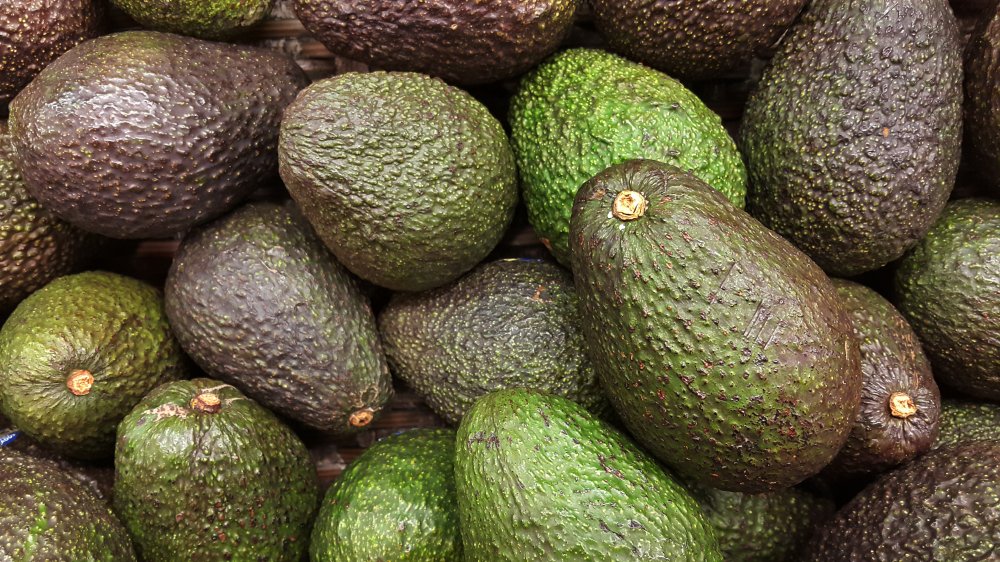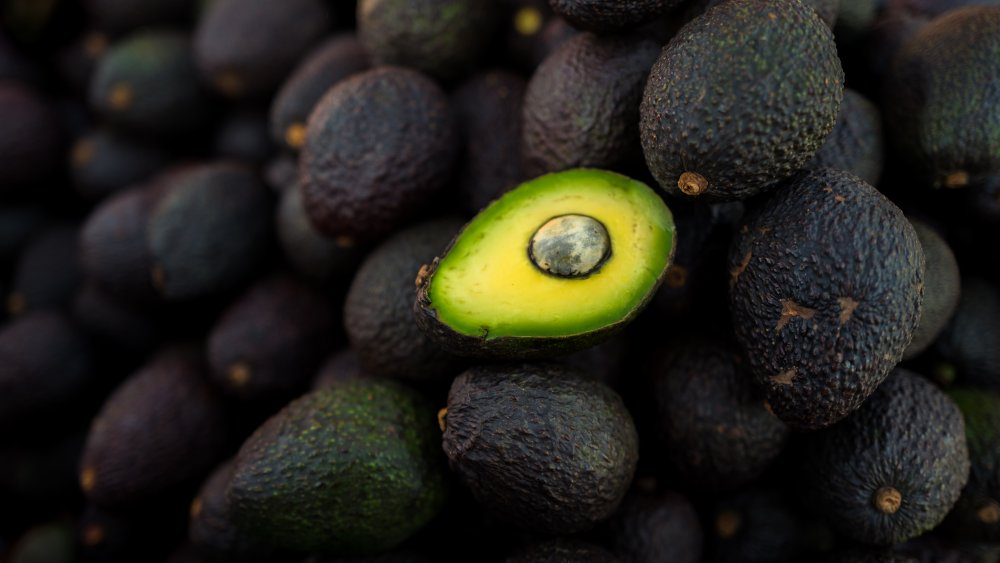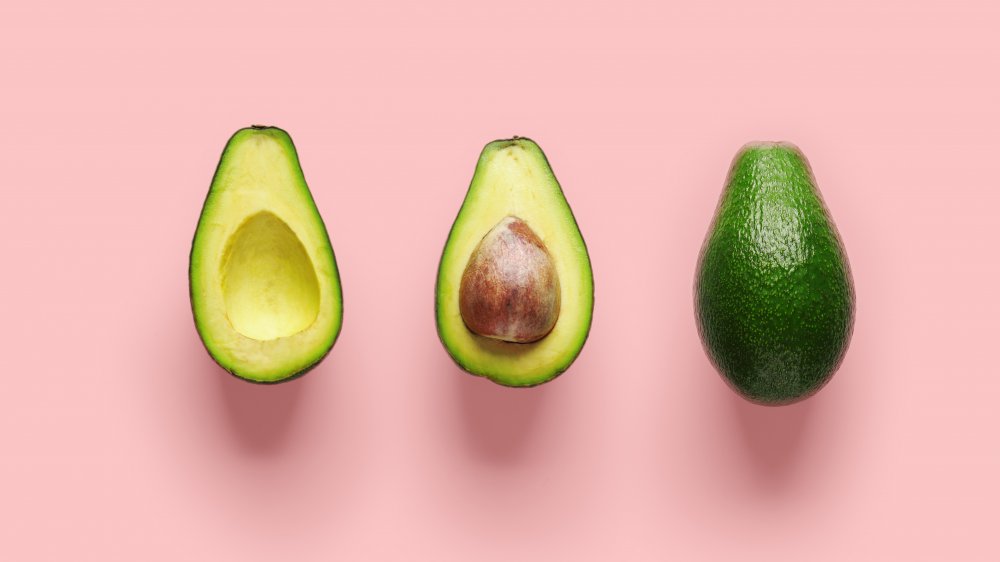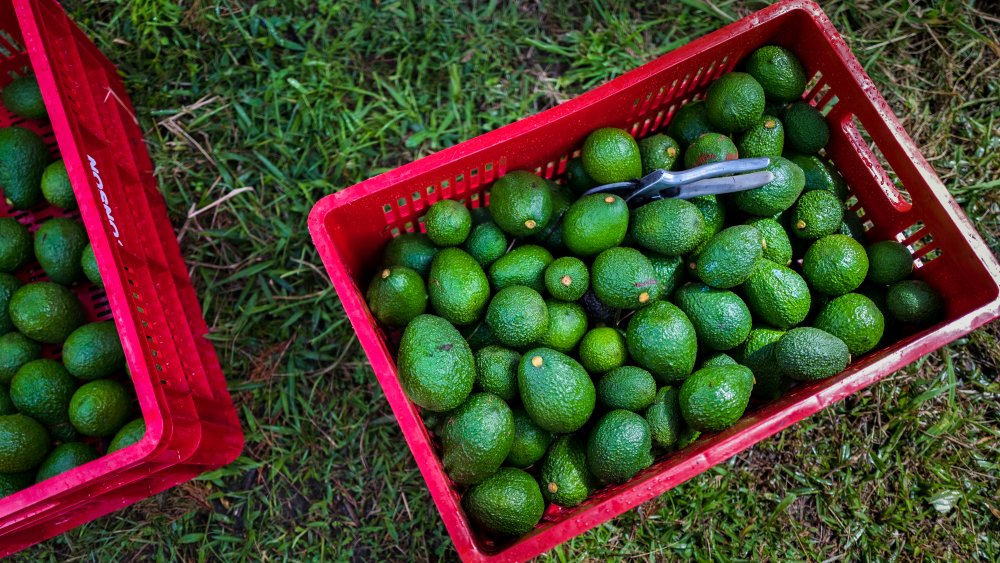Here's What Happens When You Eat An Avocado Every Day
Avocados are all the rage these days. Avocado toasts are on the brunch menu at most restaurants, and avocado oil is being seen regularly, not only as part of a skincare regimen, but also as a healthy oil to replace less nutritious oils in products like mayonnaise (via Nourished Kitchen and Medical News Today).
In 2018, avocado sales in the country exceeded $2.4 billion, which was a 7.4 percent increase from the previous year (via Produce Market Guide). If Americans ever begin drinking avocado shakes and smoothies as are popular in Southeast Asia, the number of the fruit consumed is really going to go through the roof (via Hungry Huy).
One of the reasons that avocados have become so popular is how good they are for you. The term superfood gets thrown around quite a bit these days, and it's not as if there's any committee determining which foods belong on the list, but it certainly stands to reason that avocados have a strong chance at garnering the title.
You'll control your cramping
Bananas are typically the fruit recommended for athletes experiencing the unpleasantness of a cramp, sometimes called a charley horse. Cramps are a painful contraction of the muscle which sometimes occur out of nowhere, but are likely to pop up during athletic activities. Some degree of contraction is important for muscles to function, but an appropriate level of potassium can also help the muscle relax by signaling to the brain when it's time to end the contractions (via Healthline).
But perhaps athletes should be turning to another potassium-rich fruit to help with their contractions, since avocados actually contain more potassium than bananas. While a 100-gram serving of a banana contains 10 percent of the recommended daily allowance of potassium, the same amount of avocado contains 14 percent of the recommended daily allowance (via Healthline). Potassium also helps to reduce the risk of strokes, heart attack, and kidney failure. It's also essential in promoting a steady heartbeat. Many people suffer from potassium deficits, but a regular intake of avocado can help to bring people up to the recommended daily intake.
You'll have plenty of healthy fatty acids in your system
If you thought that the term "monounsaturated fatty acid" doesn't sound particularly healthy, you would be wrong. Monounsaturated fatty acids are found in nuts and olive oil, and are a key component in the Mediterranean Diet, widely believed to be one of the healthiest diets a person can follow (via Science Direct).
The most prominent monounsaturated fatty acid in avocados is oleic acid, also the major component of olive oil. This compound helps in reducing the amount of cholesterol in the blood, and can prevent heart disease as well. Some 70 percent of the fat in avocado oil is oleic acid (via Healthline).
Given the fact that an avocado gets 77 percent of its calories from fat (it happens to be one of the fattiest fruits or vegetables on the planet), it's a good thing for avocado lovers that those fats are healthy ones.
Your bones will be healthy and strong
It goes without saying that some nutrients are given more attention than others. One of the most ignored vitamins is vitamin K. Perhaps it's because it comes so late in the alphabet that it's commonly forgotten, but vitamin K, found in eggs, and green leafy vegetables is an extremely vital aspect of bone health (via Medline Plus). A healthy intake of vitamin K will help in increasing bone density and reduces the risk of bone fractures (via Web MD).
While it's true that calcium and vitamin D are essential when it comes to bone health and preventing diseases such as osteoporosis, vitamin K helps with the efficacy of calcium. It increases the rate at which the body absorbs calcium and reduces the amount which the body excretes during urination (via Medical News Today). Eating an entire avocado will provide you with half of the recommended daily allowance of vitamin K.



